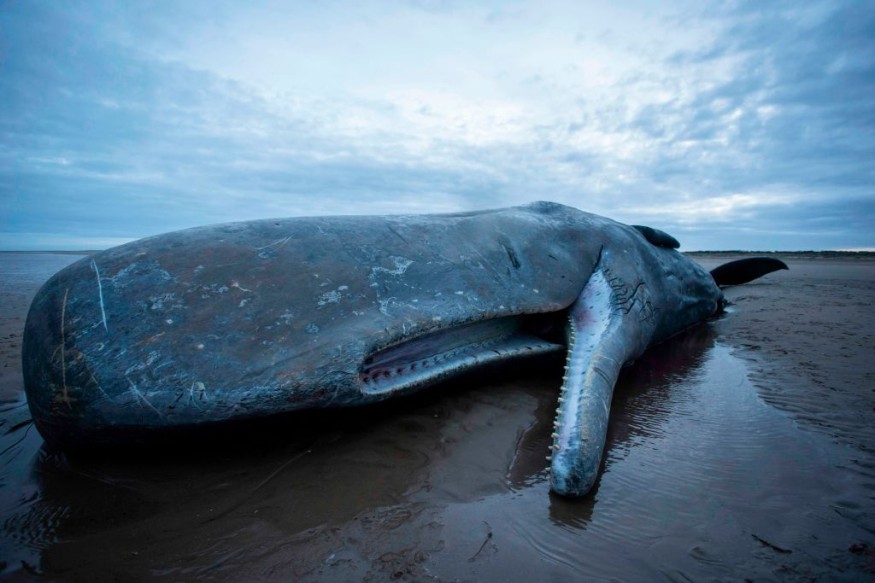Scientists from the National Oceanic and Atmospheric Administration (NOAA) reported that a 40-ton male sperm whale was found stranded in the Florida Keys on May 10 after a fisherman reported the incident.
Biologists have conducted a necropsy on the sperm whale that beached itself on the shore. They found various debris in its stomach that likely contributed to its death. The adult male sperm whale is the second sperm whale that died in the Florida Keys within seven days. The first one was a newborn calf that got separated from its mother.

Trash Likely Killed the Sperm Whale
Wildlife experts from the Florida Fish and Wildlife Conservation Commission (FWC), Dolphins Plus Marine Mammal Responders, and Mote Marine Laboratory immediately joined NOAA. They went to the reported area where the dead sperm whale was found. Biologists who examined the sperm whale noted that the 47-foot male adult whale was extremely thin.
They found a mass of "intertwined line, net pieces and plastic bag type material in its stomach." The biologists said that the debris most likely did not allow the whale to eat and digest its food properly, causing its emaciated condition leading it to be stranded on the shore and eventually die.
FWC said that further diagnostic analyses of the dead sperm whale's tissue they collected during necropsy would be used to rule out health-related issues and confirm the cause of its death.
They will also analyze the debris material found in the whale's stomach to determine its type and origin. They remind the public to call for trained responders to intervene and take care of the stranded animals that are either ill or injured.
Before the stranding of the male sperm whale, a newborn female calf died on May 4 after beaching itself in Key Largo. NOAA's southeast regional marine mammal stranding coordinator Blair Mase explains that the calf likely died after getting separated from its mother.
Sperm Whale Listed as Endangered Species
Under the Endangered Species Act and Marine Mammal Protection Act, sperm whales are currently classified as endangered species due to their depleting population and should be protected.
According to Metro, sperm whales were a prime target for the commercial whaling industry from the 19th century until the late 20th century, which has caused the major decline of their populations. Today, their numbers are slowly increasing due to the ban on commercial whaling implemented in 1986 by the International Whaling Commission.
FWC spokesperson Kelly Richmond said that sperm whales are the largest toothed whales and have the widest global distribution of population in the whole world. Unfortunately, debris intentionally and accidentally ends up in lakes, waterways, and marine environments that poison marine animals.
Richmond added that the unsightly debris threatens fish and wildlife, navigational and also human health. She noted that plastic debris could build up in the whales' stomachs and cause health issues and even death. Entanglement in fishing lines and other trash leads to infection, amputation, and starvation and could kill marine animals too.
RELATED ARTICLE : Dead Sperm Whale Contains 220-lb of Garbage on its Stomach
Check out more news and information on Whales in Science Times.










